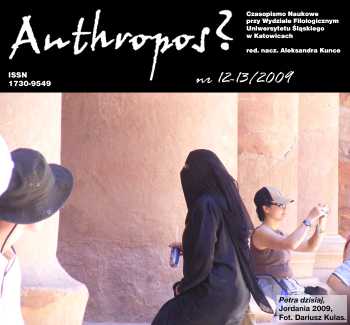Antropologia punktów. W stronę pedagogiki przestrzeni ludzkiej
Anthropology of Points. Towards the Pedagogy of Human Space
Author(s): Aleksandra KunceSubject(s): Cultural Essay, Political Essay, Societal Essay
Published by: Instytut Nauk o Kulturze i Studiów Interdyscyplinarnych - Wydział Filologiczny - Uniwersytet Śląski
Keywords: anthropology of points; existence; human space; experience
Summary/Abstract: Anthropology of points outlines a research perspective which makes it possible to interpret culture, but it also leads to the foundation of the pedagogy of human space. To read culture through points is in fact to learn to comprehend the environing and alien space, but also to learn to understand oneself. Anthropology of points as a mental and pedagogical project is today a challenge. The strategy here is to follow the notion of a point. It is a key term which both establishes and concludes this humanistic undertaking. It is vital to point out that it serves not only as a tool for ordering the world, aimed at classifying and enclosing the living tissue of culture within a scheme. Its purpose is rather to uncover a way of experiencing what is specific to a human being. The crucial questions for anthropology all derive from a point, no matter to what extent our cognition opens up towards what is human, all-too-human, non-human, animal-like or divine. Why does a human being need points in order to perceive things? Why can't a human, while experiencing herself, the others and space, do without the points of support she constructs? Why are perspectives as points of view (disregarding the statements of universality or relativity of one's judgments) the only traces after the movement of thought that can only be point-like? Why is a human only to be grasped through points of convergence or divergence within the network of relations? Why is the fragility of a human uncovered at particular points of her existence rather than in the continuum of her being? Why is a point, something tiny, marginal and strange, the place that is genuine? Why is it only a point that is capable of revealing a human being in her basic existential dimension, without ideologizing and mythologizing of the world? Why shall the ethical horizon of events that we delineate around a human concentrate on the points of her experience, points of her existence or critical points (as long as it is genuine and does not solely constitute the body of knowledge)? Why does a human bring up the truth of the area on condition that she is presented through points and at a particular point of space-time continuum? Why is it only by following molecules of the matter point by point that one is able to show the complexity of the world? Why is the point-like description to be regarded not only as a mere escape from the burden of synthesis and generalization but as a movement of thought that attempts to get as close as possible to a human and the nature of events? Last but not least, there is also a question of the form of the humanistic reflection that is point-like because it is close to a human in its thinking.
Journal: Anthropos?
- Issue Year: 2009
- Issue No: 12-13
- Page Range: 137-149
- Page Count: 13
- Language: Polish

